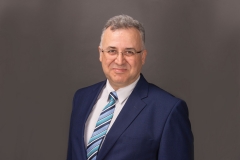
FACULTY OF ARTS AND SCIENCES
Department of Physics
GEIN 314 | Course Introduction and Application Information
| Course Name |
Service Design Project
|
|
Code
|
Semester
|
Theory
(hour/week) |
Application/Lab
(hour/week) |
Local Credits
|
ECTS
|
|
GEIN 314
|
Fall/Spring
|
2
|
2
|
3
|
4
|
| Prerequisites |
None
|
|||||
| Course Language |
English
|
|||||
| Course Type |
Service Course
|
|||||
| Course Level |
First Cycle
|
|||||
| Mode of Delivery | - | |||||
| Teaching Methods and Techniques of the Course | - | |||||
| Course Coordinator | ||||||
| Course Lecturer(s) | ||||||
| Assistant(s) | - | |||||
| Course Objectives | The main purpose of this course is to strengthen the knowledge regarding service design approaches and methods. In other words, the general aim of the course is to provide students with a set of techniques that will enable to design new services. |
| Learning Outcomes |
The students who succeeded in this course;
|
| Course Description | This course entails the theoretical knowledge and practical application of service design approaches and methods. In this case; students are expected to design their own service design projects. Students will produce visual presentations of their design concepts. |
|
|
Core Courses | |
| Major Area Courses | ||
| Supportive Courses | ||
| Media and Management Skills Courses | ||
| Transferable Skill Courses |
WEEKLY SUBJECTS AND RELATED PREPARATION STUDIES
| Week | Subjects | Related Preparation |
| 1 | Introduction (general overview) | None |
| 2 | Lecture: General principles of service design, changing roles of designers | Reading: Daniela Sangiorgi & Sabine Junginger (2015) Emerging Issues in Service Design, The Design Journal, 18:2, 165-170. |
| 3 | Introduction to the service design project; information about the project theme | Reading: Nicola Morelli (2009). Service as value co-production: Re-framing the service design pro-cess, Journal of Manufacturing Technology Management, 20(5), 568-590. |
| 4 | Lecture: Service design methods and tools; Studio critiques of service design research and projects | Research on service design project (desk research) |
| 5 | Lecture: Service design and social innovation; Studio critiques of service design research and projects | Research on service design project (desk research & field research) |
| 6 | Lecture: Service interactions, encounters and experience; Studio critiques of service design research and projects | Research on service design project (desk research & field research) |
| 7 | Lecture: The role of service design in shaping systems and organizations; Studio critiques of service design research and projects | Research on service design project (desk research & field research) |
| 8 | Lecture: Service design projects at different levels and sectors; Studio critiques of service design projects | Service design project development (scenario building) |
| 9 | Studio critiques of service design research and projects | Service design project development (storyboard + stakeholder map) |
| 10 | Studio critiques of service design research and projects | Service design project development (service prototype/visualization) |
| 11 | Presentation 1: Research and project outcomes | None |
| 12 | Studio critiques of service design research and projects | Service design project development (service prototype/visualization - version 2) |
| 13 | Studio critiques of service design research and projects | Service design project development (service prototype/visualization - final version) |
| 14 | Presentation 2: Service design project outcomes | None |
| 15 | Submission | Submission of related project documentation (project logbook) |
| 16 | Review of the semester | None |
| Course Notes/Textbooks | |
| Suggested Readings/Materials |
EVALUATION SYSTEM
| Semester Activities | Number | Weigthing |
| Participation |
1
|
10
|
| Laboratory / Application | ||
| Field Work | ||
| Quizzes / Studio Critiques | ||
| Portfolio | ||
| Homework / Assignments |
7
|
30
|
| Presentation / Jury |
2
|
30
|
| Project |
1
|
30
|
| Seminar / Workshop | ||
| Oral Exams | ||
| Midterm | ||
| Final Exam | ||
| Total |
| Weighting of Semester Activities on the Final Grade |
11
|
100
|
| Weighting of End-of-Semester Activities on the Final Grade | ||
| Total |
ECTS / WORKLOAD TABLE
| Semester Activities | Number | Duration (Hours) | Workload |
|---|---|---|---|
| Theoretical Course Hours (Including exam week: 16 x total hours) |
16
|
4
|
64
|
| Laboratory / Application Hours (Including exam week: '.16.' x total hours) |
16
|
0
|
|
| Study Hours Out of Class |
0
|
||
| Field Work |
0
|
||
| Quizzes / Studio Critiques |
0
|
||
| Portfolio |
0
|
||
| Homework / Assignments |
7
|
2
|
14
|
| Presentation / Jury |
2
|
4
|
8
|
| Project |
1
|
24
|
24
|
| Seminar / Workshop |
0
|
||
| Oral Exam |
0
|
||
| Midterms |
0
|
||
| Final Exam |
0
|
||
| Total |
110
|
COURSE LEARNING OUTCOMES AND PROGRAM QUALIFICATIONS RELATIONSHIP
|
#
|
Program Competencies/Outcomes |
* Contribution Level
|
||||
|
1
|
2
|
3
|
4
|
5
|
||
| 1 | To be able master and use fundamental phenomenological and applied physical laws and applications, |
|||||
| 2 | To be able to identify the problems, analyze them and produce solutions based on scientific method, |
|||||
| 3 | To be able to collect necessary knowledge, able to model and self-improve in almost any area where physics is applicable and able to criticize and reestablish his/her developed models and solutions, |
|||||
| 4 | To be able to communicate his/her theoretical and technical knowledge both in detail to the experts and in a simple and understandable manner to the non-experts comfortably, |
|||||
| 5 | To be familiar with software used in area of physics extensively and able to actively use at least one of the advanced level programs in European Computer Usage License, |
|||||
| 6 | To be able to develop and apply projects in accordance with sensitivities of society and behave according to societies, scientific and ethical values in every stage of the project that he/she is part in, |
|||||
| 7 | To be able to evaluate every all stages effectively bestowed with universal knowledge and consciousness and has the necessary consciousness in the subject of quality governance, |
|||||
| 8 | To be able to master abstract ideas, to be able to connect with concreate events and carry out solutions, devising experiments and collecting data, to be able to analyze and comment the results, |
|||||
| 9 | To be able to refresh his/her gained knowledge and capabilities lifelong, have the consciousness to learn in his/her whole life, |
|||||
| 10 | To be able to conduct a study both solo and in a group, to be effective actively in every all stages of independent study, join in decision making stage, able to plan and conduct using time effectively. |
|||||
| 11 | To be able to collect data in the areas of Physics and communicate with colleagues in a foreign language ("European Language Portfolio Global Scale", Level B1). |
|||||
| 12 | To be able to speak a second foreign at a medium level of fluency efficiently |
|||||
| 13 | To be able to relate the knowledge accumulated throughout the human history to their field of expertise. |
|||||
*1 Lowest, 2 Low, 3 Average, 4 High, 5 Highest
NEWS |ALL NEWS

Four major awards in 5 years
Prof. Dr. Göktuğ Karpat, Faculty Member at Department of Physics, Faculty of Arts and Science, Izmir University of Economics (IUE) has been

The Physics Department Erasmus Agreement
Dear Students of the Physics Department at Izmir University of Economics, We are pleased to share with you an exciting announcement! Our university

Loved physics, gave up her childhood dream
Senem Özdemir, who has been dreaming of becoming a pilot since childhood, graduated as the top student in the Department of Physics

Scientific visit to the Department of Physics
Dr. Parisa Majari came to visit our Physics Department. Dr. Majari who studied with Prof. Dr. Gürsoy Bozkurt Akgüç gave a seminar

Ambassador of 'goodness'
Berfin Kolcu, a student of Izmir University of Economics (IUE) Department of Physics, went to Hatay, where thousands of people were under

our student physics project at the finals
NEBULA rocket team, a branch of physics club established by our students is now at the finals after succesfully passing critical design


